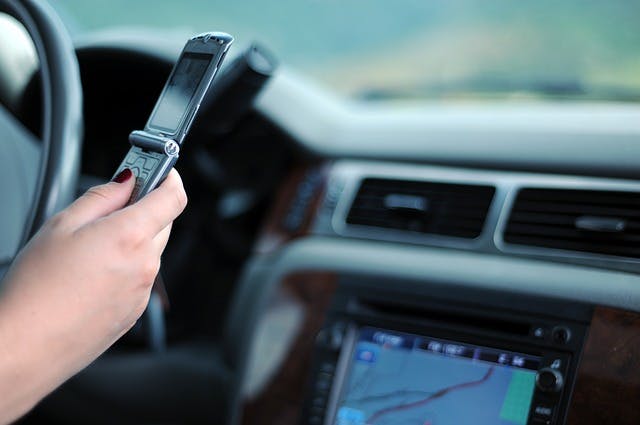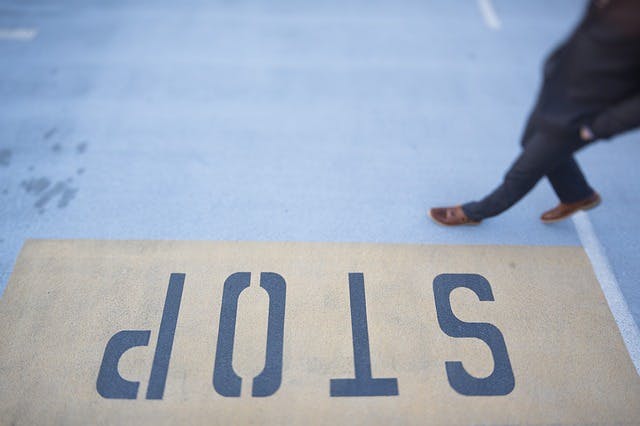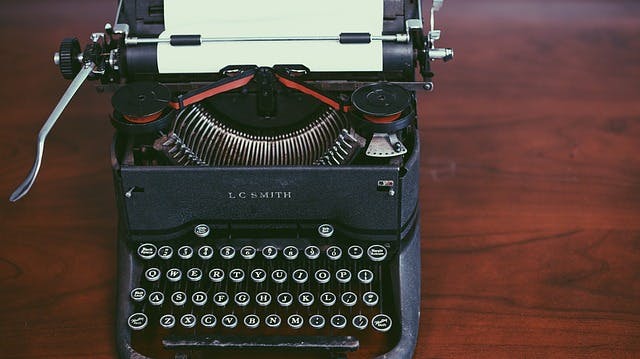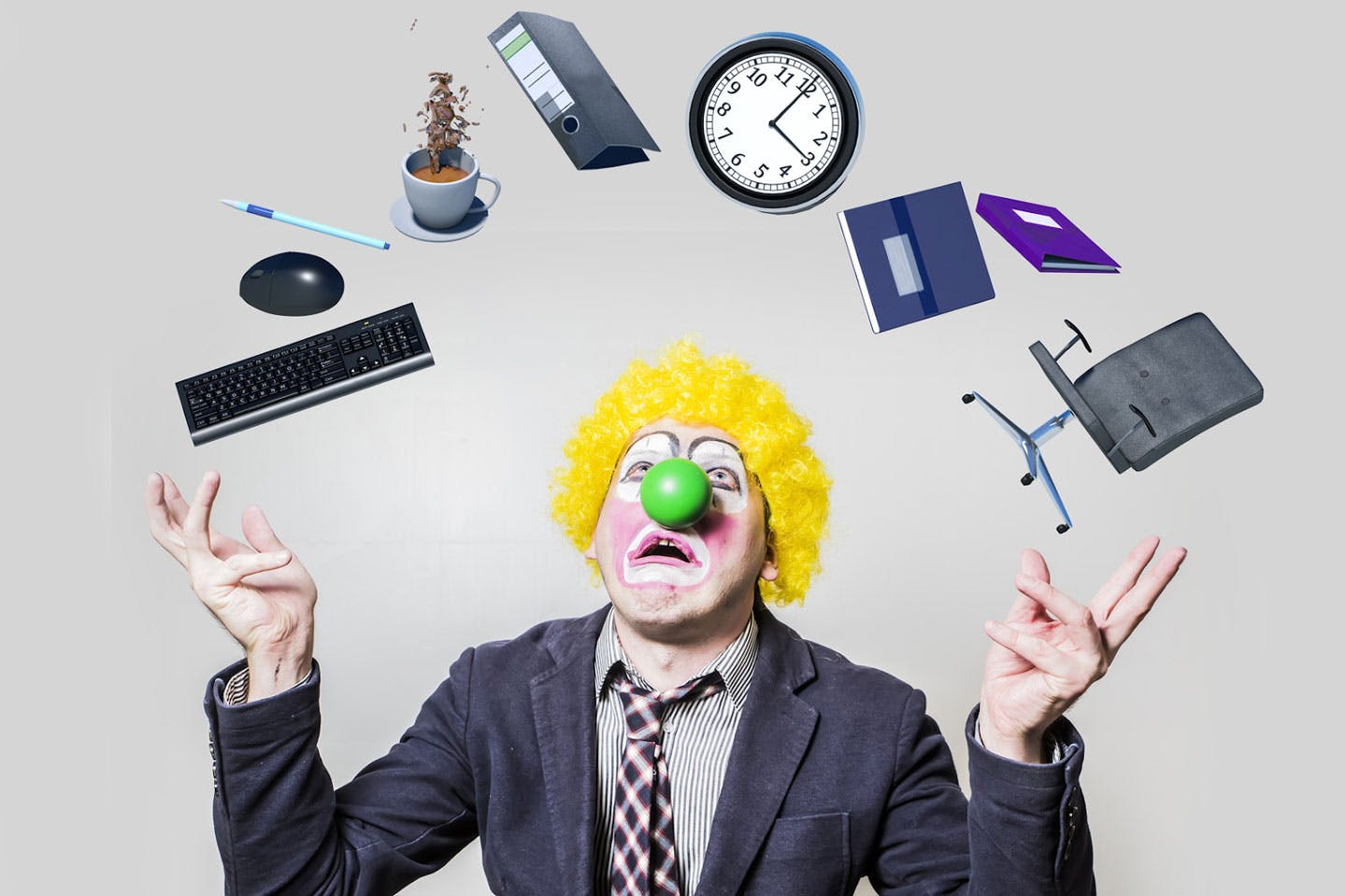
Despite popular belief that multitasking increases productivity, studies show that it actually hinders workplace performance.
In our modern-day office, Durga, the warrior goddess, would not have her ten hands filled with weapons, rather she would have cell phones, keyboards, calendars, pen, pad of paper and she would be the center of the office’s attention. She would be worshipped on SLACK with her own channel and feted with fresh donuts and the finest coffee around, Why? Because when we see someone who is doing ten things at once, we assume they are above us, on some god level because they have mastered multitasking. All hail the multitasker for they are the future, they are evolution in motion, they are the very best of what we can achieve.
Meh, turns out, not so much.
The Myth of Multitasking
In this age of I need it done two days ago, technology-enhanced days and nights, there has risen a mythical beast that has caused us to pause in awe, stand and stare, admire and attempt to emulate. This beast is the multitasker. Someone who can do four, five, ten things at once and give the appearance of incredible productivity. Sadly, appearances can be deceiving. Turns out, there really is no such thing as multitasking. The human brain, as complex and wonderful as it is, cannot do more than one task at a time.
Humans do not do a lot of things simultaneously rather, we switch from one task to another incredibly quickly. This gives the appearance of doing many things at once but, again, it is only in appearance.
Earl Miller, Picower Professor of Neuroscience at MIT, says that for the most part, we humans simply cannot focus on more than one thing at a time. He goes on to say that the idea of multitasking is sort of made up because we now live in a world where we need to feel that we can do many things at one time. We need to feel this way because, for all our love for technology, we have a deep fear that we are going to be replaced because we can’t keep up. Thus, the idea of multitasking grows.
In fact, Professor Miller says that multitasking can actually reduce productivity as much as 40%. The reason is that it may seem like you’re getting many things done at one time but what you’re actually doing is quickly shifting from one thing to the next. That’s where the problems arise.
Switching from one task to another makes it difficult to tune out distractions and can cause mental blocks that will slow you down. Recent research suggests that this switching takes a serious toll on productivity.
In the brain multitasking or the illusion of it, is managed by mental executive functions. There are two stages of the executive control process:
- Stage one: “Goal shifting” deciding to do one task instead of another.
- Stage two: “Role Activation” Changing from the rules of the previous task to the rules of the new task.
Switching between these may only add a time cost of a few tenths of a second, but this can add up when people begin switching back and forth repeatedly.
In most cases, this isn’t a big deal like folding laundry and watching T.V. However, if you’re in a situation where safety and productivity are important, like driving a car in heavy traffic, even small increments of time can prove critical.

So, people think it’s okay to drive and text or drive and talk on the phone or drive and eat a four-course meal because they have mastered multitasking. When, in reality, their brain is madly switching from the rules of driving to the rules of social etiquette on the phone, to the rules of which fork to use first. All the while, tenths of seconds between tasks are piling up and your reaction time and productivity are slowing down exponentially.
Experts, like Professor Miller, suggest focusing on one task fully, getting that job done quickly and correctly.
Standford Study
In a 2009 study, Stanford University researcher, Clifford Nass, found that people who were considered heavy multitaskers were actually worse at sorting relevant information from irrelevant details. They also showed greater difficulty when it came to switching from one task to another and were much less mentally organized.
The most frightening part of this research showed that these results occurred when these heavy multitaskers were not multitasking but focusing on just one single task. Their brains were less effective and efficient.
Nass’s study also showed that people who actively stopped multitasking regained their performance ability and were able to switch between tasks easily and productively. So, there is hope.
Experts like Nass have posited that the negative impact of heavy multitasking might be most detrimental to adolescent minds. At this stage of development, teen brains should be busy forming important neural connections however, the multitasking slows and sometimes negates the formation of these connections.
Minimize the Negative
To fight the negative effects of multitasking and to rid yourself of the myth that multitasking is good, try this:
- Cut the number of tasks you usually juggle at one time down to two. Just two tasks getting your attention at any given time.
- Apply the 20-minute rule. Set a timer so you don’t have to think about it, and then do one task completely and fully for 20-minutes before switching to the second task.
- When it’s time to switch, stop the first task fully, reset the timer for 20-minutes and then engage the second task fully and completely for 20-minutes.
In this scenario, you will be more productive, make fewer mistakes and feel less frazzled.
Why Quit Multitasking
If the research and the tests weren't enough here are ten clear reasons to stop trying to multitask.
- It’s a lie, you’re not really doing multiple tasks at once.
- It’s actually slowing you down.
- You make more mistakes multitasking meaning you have to do work again.
- Too many tasks are causing you stress because in multitasking mode you’re constantly on “high-alert”.
- You’re missing out on the world around you. People who multitask, especially ones that involve technical gadgets, don't see what’s happening right in front of them. In a 2009 study from Western Washington University, researchers found that 75% of students who walked across a campus square while talking on a cell phone didn’t notice a clown riding a unicycle close by. The researchers called this; “inattentional blindness.” even though the phone talkers were technically looking at their surroundings, none of it was actually registered in their brains.
- Your memory suffers
- It hurts relationships. A recent University of Essex study showed that having a cell phone nearby during a personal conversation-even if neither party is using it- can cause friction and trust issues.
- It’s dampening your creativity. Multitasking requires a lot of “working memory”. When working memory is used up, it can take away from your ability to think creatively. Multitaskers find it hard to daydream and generate spontaneous “a-ha” moments.
- You can’t OHIO when you multitask. Psychiatrists and productivity experts recommend OHIO: Only Handle It Once, when taking on a task. Don't stop until you’re finished with that one task. Only Handle it Once. Multitaskers handle things 5 or 6 times. If you OHIO, when a distraction or a brilliant idea arises, you know you have time for it in your well planned day. so it gets the attention it needs and doesn’t pull away from other tasks.
- It is dangerous. Texting or talking on a cell phone while driving, even if it’s a hands-free device, is as dangerous as driving drunk. Studies have shown that people walking while using a mobile device are less likely to look before stepping into a crosswalk.
Too many tasks are causing you stress because in multitasking mode you’re constantly on “high-alert”.
Don't Buy In

It’s easy to get caught up in the whole idea of multitasking. When someone in the office is taking phone calls, designing a website, holding meetings, creating an app and planning the company picnic all at the same time, it can make you feel like a slacker. But, remember, that multitasker isn’t giving nearly their full attention to each task they are undertaking. Not giving full attention leads to more mistakes, more things that need to be redone, more time and money spent on tasks that are handled poorly and a company picnic with 5000 hot dog rolls and no hot dogs.
Stop putting unrealistic goals on yourself, stop trying to do everything at once. Take your time, give each task your full attention and you’ll find you are more productive, more accurate and less stressed out by the end of the day. While your multitasking friend is at the bar multitasking vodka then multitasking driving while vomiting their way home, you’re being productive and sane. That’s a task to focus on.

